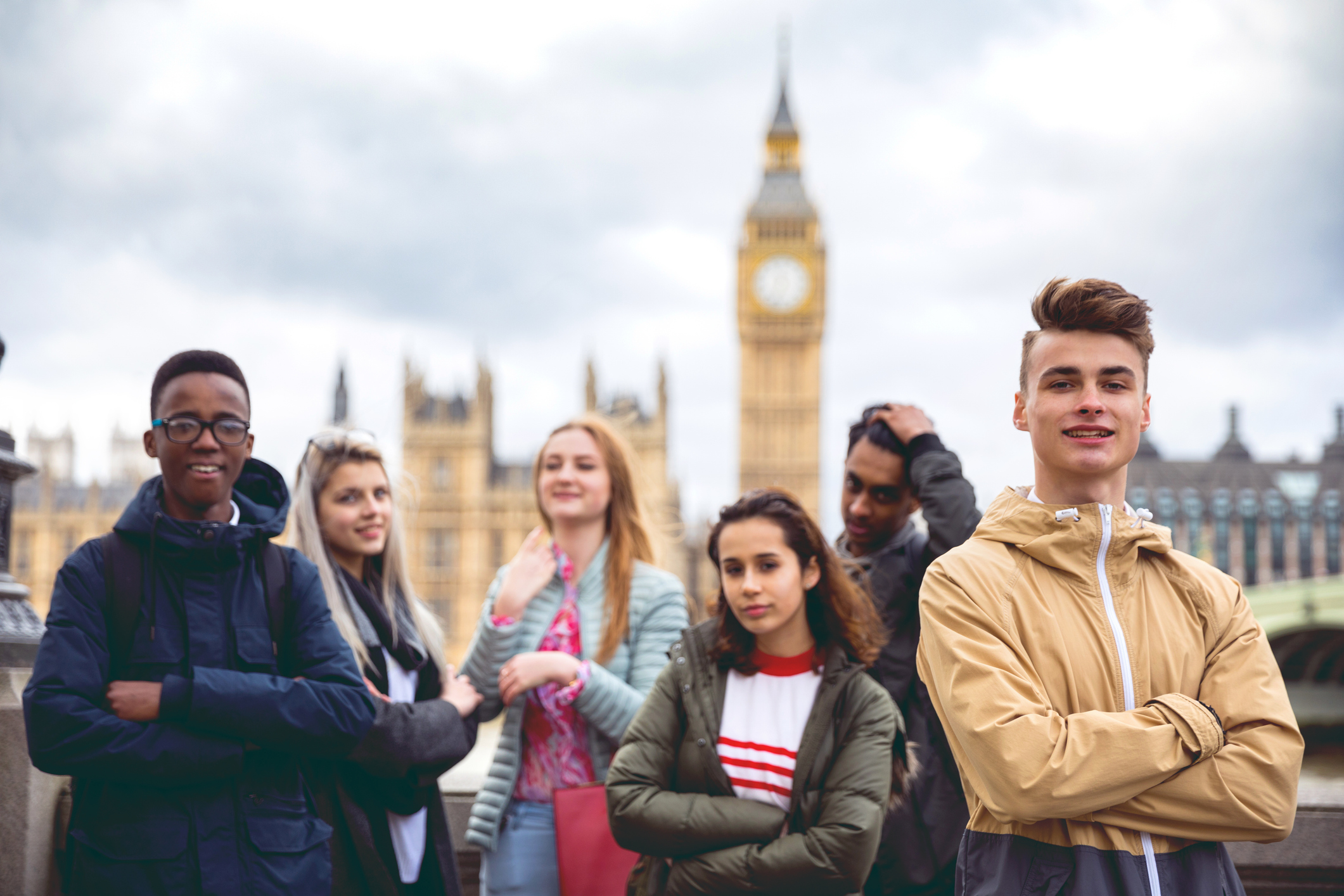16 year olds can vote in the next general election – can Labour win with teens?
Should 16 and 17 year olds in England be voting in the next general election - and what could Labour do to be in with the kids, asks Kalpana Fitzpatrick


Get the latest financial news, insights and expert analysis from our award-winning MoneyWeek team, to help you understand what really matters when it comes to your finances.
You are now subscribed
Your newsletter sign-up was successful
Want to add more newsletters?

Twice daily
MoneyWeek
Get the latest financial news, insights and expert analysis from our award-winning MoneyWeek team, to help you understand what really matters when it comes to your finances.

Four times a week
Look After My Bills
Sign up to our free money-saving newsletter, filled with the latest news and expert advice to help you find the best tips and deals for managing your bills. Start saving today!
UK democracy is modernising - sweet sixteens and seventeen year olds will be given voting rights in England for the first time in the next general election.
The change was promised in Labour’s manifesto, and aims to restore trust in politics through ‘Labour’s Plan for Change’.
As part of the seismic changes, voters will also be able to use their bank cards as ID, making it easier for people to turn up and exercise their right to vote.
MoneyWeek
Subscribe to MoneyWeek today and get your first six magazine issues absolutely FREE

Sign up to Money Morning
Don't miss the latest investment and personal finances news, market analysis, plus money-saving tips with our free twice-daily newsletter
Don't miss the latest investment and personal finances news, market analysis, plus money-saving tips with our free twice-daily newsletter
In England, you currently have to be 18 to vote. In 1969, the voting age was lowered from 21 to 18. Lowering the age brings the voting system in line with Scotland and Wales, where 16-17 year olds can vote.
Deputy prime minister Angela Rayner said: “For too long public trust in our democracy has been damaged and faith in our institutions has been allowed to decline. We are taking action to break down barriers to participation that will ensure more people have the opportunity to engage in UK democracy, supporting our Plan for Change, and delivering on our manifesto commitment to give sixteen year olds the right to vote.”
There are concerns that not all 16 year olds have a grasp of the right information at that age to make an informed decision. I also believe that many will follow influence - whether it be family, friends or social media. Can a 16 year old filter out the noise and make an informed choice?
But, if they can tie the knot at 16, work and pay taxes, why shouldn’t they have a say on which government is in charge of the policies that impact their finances? Maybe.
What can Labour do for 16 year olds?
Having upset older voters with the winter fuel allowance cuts, even though that has seen a U-turn, alongside other fiscal policies over IHT and pension changes, Labour will need to look very attractive to this new wave of younger voters that it may desperately need.
But can Labour deliver on their priorities - and what would those priorities be?
For those that stay in education, student fees are likely to be a talking point - would Labour scrap or reduce them?
For those starting employment, perhaps a boost to their pension journey by scrapping the minimum income level at which they are enrolled into a pension, or possibly a non-contributory incentive until they are at least 18?
Gaining the support of this age group will possibly cost the government more and any party that wants the votes of teens is going to have to try hard to grab their attention.
It’s hard to know what 16 year olds are looking for.
According to a poll of 500 16-17 year olds by ITV News, half do not want the power to vote.
And if they were to vote, the poll found 16 and 17 year olds favoured left-wing parties, though Nigel Farage's Reform UK came up second as the most-supported party.
Around 33% said they supported Labour, 20% said Reform, 18% said Green.
My view is, this age group has just left school, they have not had time to absorb what is going on in the world, they do not yet know what they need in life and what policies they would support. Worryingly, they will be led by influence. Popping the ‘X’ into a black box, in my view, should be left for the 18-plus.
But equally, if Labour truly wants to modernise the voting system and UK democracy, then it should perhaps also remove voting for 80-plus. Policies like Brexit will impact younger people, and so it should be their vote that really matters.
Get the latest financial news, insights and expert analysis from our award-winning MoneyWeek team, to help you understand what really matters when it comes to your finances.
Kalpana is an award-winning journalist with extensive experience in financial journalism. She is also the author of Invest Now: The Simple Guide to Boosting Your Finances (Heligo) and children's money book Get to Know Money (DK Books).
Her work includes writing for a number of media outlets, from national papers, magazines to books.
She has written for national papers and well-known women’s lifestyle and luxury titles. She was finance editor for Cosmopolitan, Good Housekeeping, Red and Prima.
She started her career at the Financial Times group, covering pensions and investments.
As a money expert, Kalpana is a regular guest on TV and radio – appearances include BBC One’s Morning Live, ITV’s Eat Well, Save Well, Sky News and more. She was also the resident money expert for the BBC Money 101 podcast .
Kalpana writes a monthly money column for Ideal Home and a weekly one for Woman magazine, alongside a monthly 'Ask Kalpana' column for Woman magazine.
Kalpana also often speaks at events. She is passionate about helping people be better with their money; her particular passion is to educate more people about getting started with investing the right way and promoting financial education.
-
 Should you buy an active ETF?
Should you buy an active ETF?ETFs are often mischaracterised as passive products, but they can be a convenient way to add active management to your portfolio
-
 Power up your pension before 5 April – easy ways to save before the tax year end
Power up your pension before 5 April – easy ways to save before the tax year endWith the end of the tax year looming, pension savers currently have a window to review and maximise what’s going into their retirement funds – we look at how
